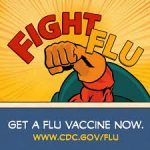August is National Immunization Awareness Month, But….
Alan Tanabe/ August 19, 2019/ immunization, Self management, vaccines/ 2 comments
…there really is no bad time of the year to have your pharmacist check your immunization records.

Greetings, everybody!
I hope that this summer has been enjoyable and healthy for you. As the title of this posts mentions, August is National Immunization Awareness Month. Let’s talk about the health benefits of vaccines and how your pharmacist can help you with these life-saving wonders that we have available to improve our health.
A little history about vaccines:
In 1796, Edward Jenner had an idea to take part of a blister from a person infected with cowpox and place it into another person’s arm with the hopes of preventing smallpox. Thus, the idea of immunization was born. Later, commonly recommended vaccines were developed in the early 20th century, including pertussis (1914), diphtheria (1926), and tetanus (1938). In 1955, the polio vaccine developed by Dr. Jonas Salk was licensed. Each of these developments has helped with increasing life expectancy of our population.
Today, advanced technology and knowledge has allowed us to benefit from improved manufacturing, distribution, and administration of these vaccines. One of the more recent developments has been allowing pharmacists to administer vaccines in our communities. Pharmacists have been able to vaccinate our patients for over a decade now (Maine was the last state to allow this beginning in 2009), and the results have been impressive. Allowing pharmacists to vaccinate has led to more people to be vaccinated without making an appointment to see their physician, and reduce waiting times. This has led to more people receiving important vaccinations on a timely basis.
While your pharmacist can give many different vaccinations, let’s talk about some of the common ones.
-Influenza (Flu): 
We are all familiar with the flu and know how miserable we can feel if we get it. However, people still underestimate how dangerous and potentially deadly the flu can actually be.
The flu season usually begins in late September and sometimes run through late May, with peaks in January and February. Usually flu vaccines first become available at pharmacies in mid to late-August. Now it is understood that flu vaccines are never perfect. This is due to the ability of the flu virus to change itself over the years. However, the Center for Disease Control (CDC) estimated that the flu vaccine of 2018-2019 was approximately 47% effective in reducing the risk of illness in people who had the flu shot. This may not seem impressive at first, but consider these statistics:
-The CDC estimated that in the USA in 2017-2018:
49,000,000 experienced symptoms of the flu.
23,000,000 visited their doctor because of flu symptoms.
960,000 were hospitalized because of the flu.
79,000 flu-related deaths.
We do not know what percentage of these people did or did not receive the flu vaccine. But if most did not, imagine lowering these numbers by 47%. That would make a big difference.
Patients at the greatest risk of developing serious complications from the flu are those with chronic health conditions. This includes high blood pressure, asthma, diabetes, and other conditions. Common complications in these patients include pneumonia, dehydration, uncontrolled blood sugar, and heart problems.
The current recommendation is for patients to get a flu shot every year. Also, remember that it takes approximately 2 weeks for your body to respond to the flu shot to provide protection against the flu, so don’t delay getting your shot!
-Pertussis (whooping cough): 
Pertussis is a serious respiratory infection that can result in violent and uncontrolled coughing, and cause difficulty breathing.
There have been more cases of pertussis in Michigan in recent years. It was estimated there were about 1,500 cases of pertussis in 2010 and 1,400 cases in 2014. In fact, in August 2019, Washtenaw County announced an exposure of pertussis at the Saline Recreation Center.
Those at greatest risk for complications from pertussis are young children and infants. It is strongly recommended that persons with frequent contact with young children (families, grandparents, babysitters, etc…) are vaccinated with the combination tetanus-diphtheria-pertussis (Tdap) vaccine before contact with young children.
The CDC currently recommends all adults over the age of 19 to get a single-dose of Tdap. It is also recommended that women get a dose of Tdap during the third trimester of each pregnancy, to provide protection for their infants.
-Hepatitis A: 
Another outbreak that has been in the news for the past few years has been hepatitis A. Hepatitis A is a disease that can cause damage to your liver. The most common cause of hepatitis A is eating food or or drinking liquid that has been contaminated with fecal matter (yuck!). Now the number one way to reduce your risk of hepatitis A is for people to WASH THEIR HANDS regularly. Since we cannot always control the hygiene (or lack thereof) of others, it is also recommended to be vaccinated against hepatitis A.
While there are recommended schedules for hepatitis vaccine during childhood (using a different formulation), it is currently recommended that adults over the age of 19 years receive an initial dose of the hepatitis vaccine followed by a booster dose at least 6 months later.
What is the good news regarding vaccinations and your pharmacist?
In addition to your pharmacist being certified to administer vaccines, most pharmacists have access to a state site that contains most of the information regarding your history of vaccinations. This is the same site that other health care professionals use, and it allows the pharmacist to determine if you are due (or overdue) for certain vaccinations. So ask your pharmacist to check your immunization status!
Questions? If so, contact us at BetterMyMeds!
Stay healthy!
p.s. This post covered only some of the commonly recommended vaccines. An additional post is in the works that will cover other vaccines that your pharmacist can administer including for shingles, pneumonia, typhoid, hepatitis B, meningitis, and others. If you have questions about any of them or would like more information regarding these, please leave a comment for us!
#vaccinations #immunization #flushot #pharmacy #healthcare #community





Please include info on tracking immunizations. I have lost track of mine and did not know about the state registry. Thanks.
Thank you for commenting, Ruth. Many health professionals, including most pharmacists, have access to what is known as the Michigan Care Improvement Registry (similar registries are available in other states) which gives detailed information as to vaccinations given to Michigan residents going back to 1994 I believe. When vaccinations are administered (by a pharmacist, physician nurse, etc…) record of these vaccinations are required to be added to a patients’ record in this site. You can certainly ask your pharmacist to access MCIR and provide you with information regarding past vaccinations and which vaccinations you may be due or overdue for.
I hope this answers your question.